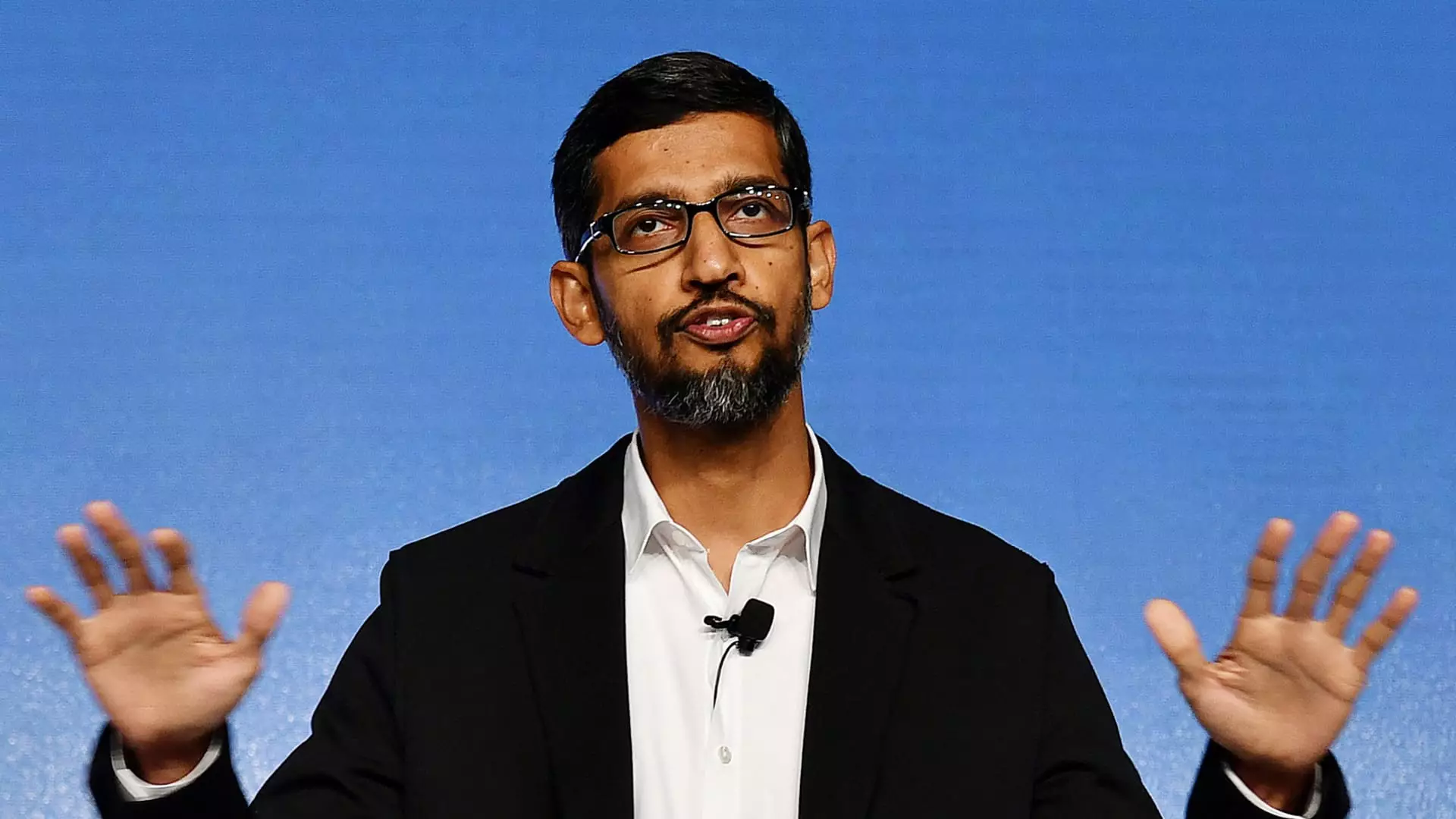In the lead-up to the U.S. elections, a significant tension has emerged at Google regarding the limits of political expression among employees. According to reports, the tech giant has actively taken steps to moderate and remove election-related discussions from its internal platforms, particularly the Memegen forum. This initiative raises important questions about the extent to which companies can and should regulate political conversations within their ranks. As Google endeavors to maintain a politically neutral atmosphere, it simultaneously grapples with the potential consequences on employee morale and the broader cultural implications.
Google’s CEO, Sundar Pichai, underscored the company’s focus on providing “high-quality and reliable information” to the public in a memo circulated to employees. Pichai emphasized the necessity of fostering an environment conducive to trust among users of Google’s diverse services, such as Search, News, and YouTube. However, this insistence on neutrality appears to clash with the reality of political discourse, which is inherently controversial. Pichai’s reminders to employees seem to reflect a corporate culture striving for a delicate balance, yet they may also inadvertently stifle organic discussions that are vital in a democratic society.
The history of Google’s policies regarding employee communications reveals a marked shift since 2019, when new guidelines were introduced that restricted statements deemed harmful or derogatory. Critics have argued that these policies are excessively broad, infringing upon free expression. Such a reaction opens up larger debates about how companies manage political speech and whether broader social and political conversations can coexist with workplace harmony.
Despite Google’s attempt to mitigate political discourse, many employees have reportedly continued to express their political views and critique the company’s policies on platforms like Memegen. This dissent indicates a significant divide between the top-down corporate governance and the grassroots sentiments among employees. The case of Project Nimbus illustrates ongoing frustrations among workers—many oppose the company’s partnership with the Israeli government on ethical grounds. This disconnect between leadership directives and employee beliefs could lead to heightened dissatisfaction and potential turnover if not navigated carefully.
Moreover, many instances have emerged where Google’s internal community management team has intervened to remove content that was not found to be overtly offensive but still fell afoul of the growing restrictions. This has raised concerns about whether employees will feel compelled to self-censor their opinions in order to avoid punishment, which could ultimately compromise authentic engagement with important issues.
As Google tightens its grip on internal conversations, the implications extend beyond mere workplace noise; they undermine the fundamental rights of employees to discuss and challenge workplace conditions, a right affirmed in a 2019 settlement with the U.S. National Labor Relations Board. This move has not only marked a significant pivot for Google as a workplace but may also lead to a chilling effect where employees second-guess their capacity to voice dissent without fear of repercussions.
Incorporating advanced artificial intelligence systems to detect and moderate content raises further ethical concerns. While AI can help with content oversight, it lacks the capability to understand nuance or context—a critical factor in meaningful discourse. Without transparency in these moderation practices, employees might remain unsure if their expressions of opinion are being suppressed unfairly, potentially fostering an atmosphere of anxiety.
Ultimately, Google’s attempts to regulate employee speech by limiting political discussions on platforms like Memegen must be approached with caution. Instead of fostering an environment rooted in fear and censorship, Google could benefit from creating more channels for open dialogue that encourage diverse opinions and respectful discourse. By doing so, it could transform potential conflicts into opportunities for innovation and collaboration—qualities that are essential for any forward-thinking technology company.
As technology continues to shape society, the role of companies like Google is becoming increasingly critical. Instead of quelling political discourse, companies should strive to facilitate it responsibly, ensuring a balance between organizational integrity and the individual rights of their employees. Finding this equilibrium is essential for nurturing healthy workplaces that value the importance of dialogue in an ever-changing world.

